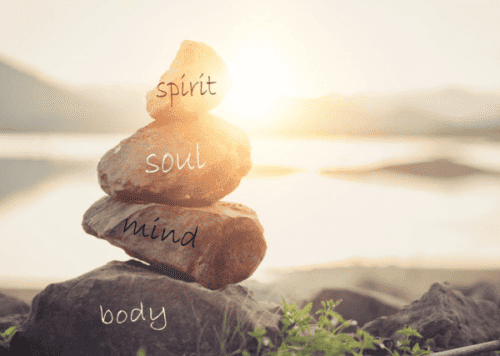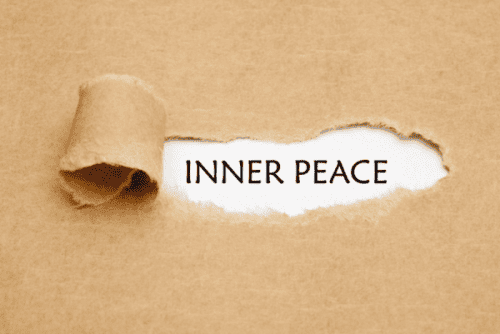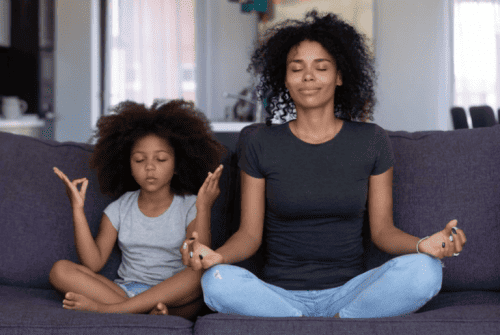Mindfulness meditation is overwhelmingly popular and has its roots in the ancient Buddhist practice of Vipassana. Or, in other words, insightful meditation. Mindfulness is the ability to be fully present in the moment. The benefits are well researched and assists with anything from stress to anxiety and depression to increased focused and happiness.
Mindfulness is the way you approach life and mindfulness meditation is a way to experience being fully present in the moment. Meditating daily integrates this into your life so you live in the ‘here and now’ without getting caught up in life’s dramas or worrying about what is beyond your control.
But what is all this talk of mindfulness and its benefits? How can it enrich your life? Here I have written all you need to know to start integrating mindfulness into your life.
 What is Mindfulness?
What is Mindfulness?
While mindfulness meditation is simple to practice, it is complex to define. Ask 2000 people what it means and you will get 2000 different answers. What it means to one person is quite different to another. So, let us look at three different definitions:
- Mindfulness is the basic human ability to be fully present, aware of where we are and what we’re doing, and not overly reactive or overwhelmed by what’s going on around us. – Mindful
- Mindfulness is:
- the quality or state of being mindful
- the practice of maintaining a nonjudgmental state of heightened or complete awareness of one\’s thoughts, emotions, or experiences on a moment-to-moment basis. – Merriam-Webster Dictionary
- Mindfulness is a state of active, open attention on the present. When we are mindful, we carefully observe our thoughts and feelings without judging them as good or bad. Mindfulness can also be a healthy way to identify and manage hidden emotions that may be causing problems in our personal and professional relationships. It means living in the moment and awakening to our current experience, rather than dwelling on the past or anticipating the future. – Psychology Today, Australia
Based on these definitions, mindfulness is about awareness as well as self-awareness.
Science-backed results
For more than 30 years, the benefits of mindfulness have fascinated researchers with them producing in excess of 15,000 studies on the subject. Empirical evidence from study after study proves mindfulness improves outcomes in multiple areas such as depression and addiction. Research shows mindfulness meditation is medically effective for chronic pain, obsessive thinking, emotional reactivity, and a range of other mental health and medical issues.
Some proven benefits of mindfulness meditation include:
- improves decision making
- assists in pain management
- you become sick less often and for less time
- elevates your immune system function
- improves youth mental health and wellbeing
- more resilient to change
- improves sleep quality
- decreases blood pressure and heart rate
- aids in improving memory, intelligence and mental function
- increases energy
- improves digestion
- decreases anxiety, depression and irritability
- improves relationships and performance
- has better results than antidepressants
- helps you to give up smoking and break other addictions.
Mindfulness and your brain
Meditation is not all mystical. It also impacts you at a biological level. A 2016 study results found meditation has links “with relatively reduced activity in the default mode network”. “What’s that?” you might think.
Your default mode network (DMN) is an intricate structure made up of your brain’s neurons that activate when you rest and day dream. So, if you are not focused on something specific, your mind switches to DMN. It is what activates the chattering that goes on in your head when watching tv, for example. This is great news as it means mediation decreases DMN activity which can “interfere with cognitive performance” while “decreased DMN activity” links to improved performance. By practicing mindfulness meditation, you boost your awareness and self-awareness as well as your focus.
But this is just the start. Mindfulness meditation makes changes on a deeper level.
More focused
Practice mindfulness mediation regularly and you will notice you have better clarity and focus. In our fast-paced days of busyness, it is difficult to fully focus on specific goals and tasks. There are so many distractions, but mindfulness meditation dials down that mental noise so you can concentrate.
Brings inner peace
After regularly practicing mindfulness meditation, you will find a sense of inner peace. So, what is inner peace? In simple terms, no longer does your mind spend precious time overthinking and analysing everything in your life. No longer will you dwell on the past, and on who and how you have been hurt. No more running from one thought to another so you do not waste precious time on useless, meaningless thoughts.
Promotes better wellbeing
Mindfulness meditation promotes better wellbeing and happiness. You become resilient to everyday stressors, and become aware of your own potential and how to use it productively. It has a positive affect on your overall health to increase your health and wellbeing.
Become an effective problem-solver
When you constantly dwell in the past and worry about the future, it is impossible to solve the problems in front of you. These thoughts clutter your mind. Mindfulness meditation unclutters your mind and brings it back to the present so you can focus on creative solutions for any problems you face.
Regulates emotions
The sate of being in the present, in the here and now, can free you from emotions like fear, anxiety, worry, doubt, panic and any other negative emotions you need to deal with. Mindfulness meditation keeps you aware and focused in the present with an open mind, so you are more aware of when and what triggers negative emotions. This gives you better control of your emotions and how you react.
Practicing mindfulness meditation
There are countless ways to practice mindfulness mediation here is just one to get you started. Download my free Mindfulness audio to play while meditating.
1. Create space and dedicate time
Dedicate a time to meditating every day. Create a special space to mediate. It is important to meditate in a calm, soothing space where you will not be interrupted. Create a meditation space in your home or in the garden under a tree where you can just relax in nature while meditating.
2. Get comfortable
Get into a comfortable seated position and loosen your clothes so they do not constrain your breathing. Sit cross-legged, if sitting on a cushion on the floor, with hands resting on your legs. When sitting in a chair, rest your feet flat on the floor with hands resting in your lap. Sit up straight but stay relaxed. Avoid slouching. Let your spine settle into its natural position.
3. Soften your focus
Allow your eyelids to droop and relax your neck a little. While you do not need to close your eyes, allow yourself see the mental pictures that appear without focusing on them. Let them pass.
4. Relax your body
Now relax your body. Focus on relaxing every muscle in your body. Visualise each one starting from the tip of your toes working upwards to the top of your head. Your neck, shoulders and face hold tension so pay these areas extra attention.
5. Think about your motivation
Briefly think about your motivation for practicing mindfulness meditation. What are your goals? To decrease depression? To become less judgemental of the world around you? To manage pain or help overcome a mental condition?
6. Focus on breathing
Focus on your breathing. Focus on your breath flowing in through your mouth, circulating through your system and then slowly leaving through your nostrils. Consider how it feels, and feel the rise and fall of your chest and stomach.
7. Concentrate on being in the present
Concentrate on being in the present. It is the only place you can truly be alive. Not in the past or the future. Accept who you are in the moment without judgement. When your mind wanders, refocus it on your breathing or the sounds around you to bring you back to the present.
8. A wandering mind
Do not worry about your mind wandering. Do not fight it. Take a moment to notice where your mind wanders without reacting. Pay attention and acknowledge it, and then move on by refocusing on your breathing.
9. How long to meditate
There is no set time you should meditate for. Meditate for as long as you like, but 10 minutes is a good way to start. As it becomes a regular practice, meditate for longer. When you finish meditating, open your eyes or slowly lift your gaze.
10. Come back to Earth
Come back to Earth by slowly returning your attention back to your surroundings and the present moment. Notice where you are. Slowly start wiggling your toes and fingers. Move your hands and feet. Take your time getting up. Take notice of the sounds and aromas in your environment. How does your body feel in that moment? What are your feelings and emotions?
Get help
If practicing mindfulness meditation on your own does not help with your issues, contact us to find out how I can help you deal with whatever you are going through. We can help with all types of mental health conditions and addictions. But, if you are in crisis, call us immediately. We can quickly help you deal with things better.
We can work with you in our Spas, over the phone or via Skype wherever you are in the world. Book in today for my Emotional Empowerment Program. I have an introductory offer for just $79 so you can start taking back control of your life. We can help you replace what worries you with clarity, focus, peace, joy and happiness in a matter of weeks. Start today.


 What is Mindfulness?
What is Mindfulness?



